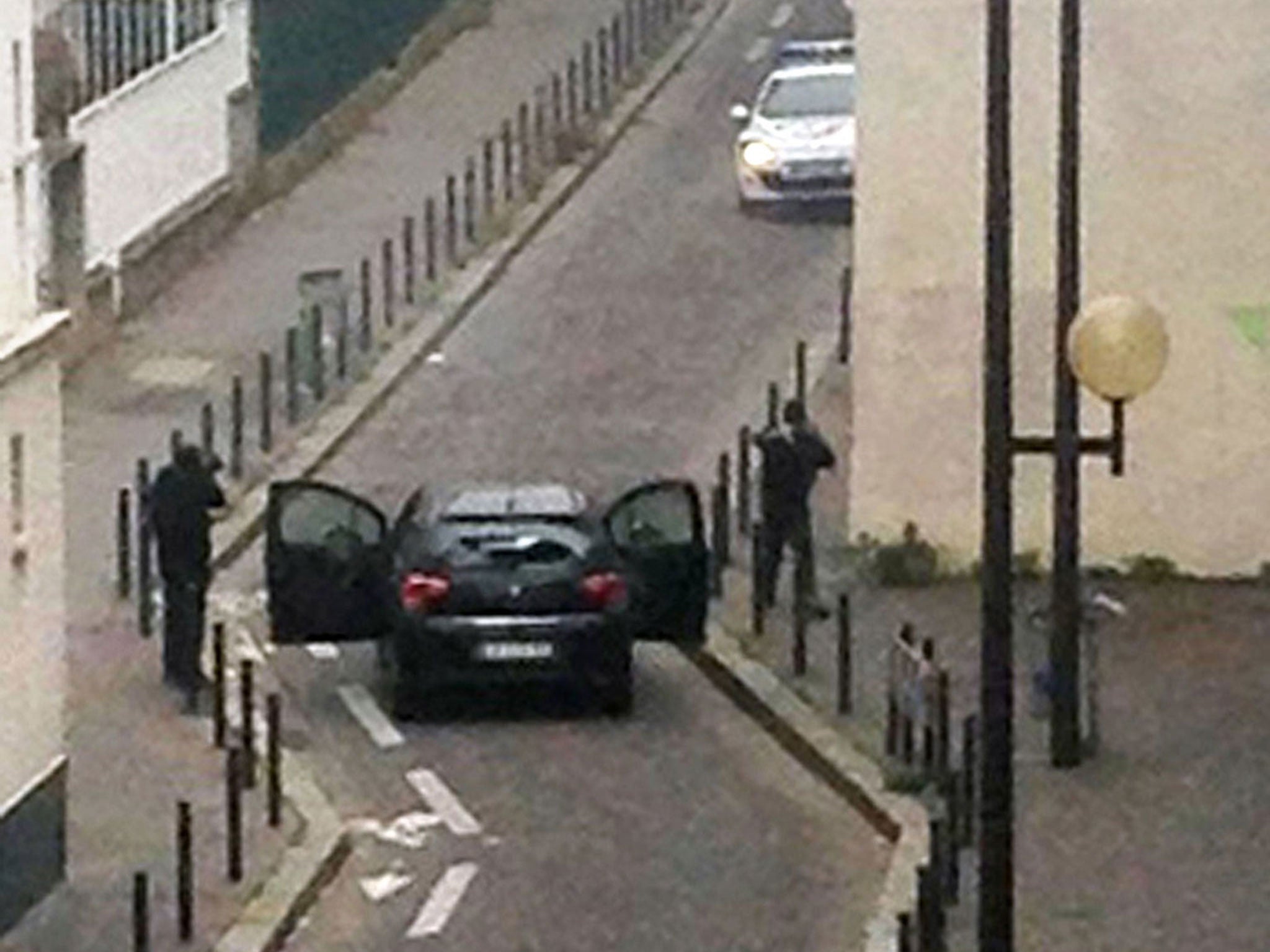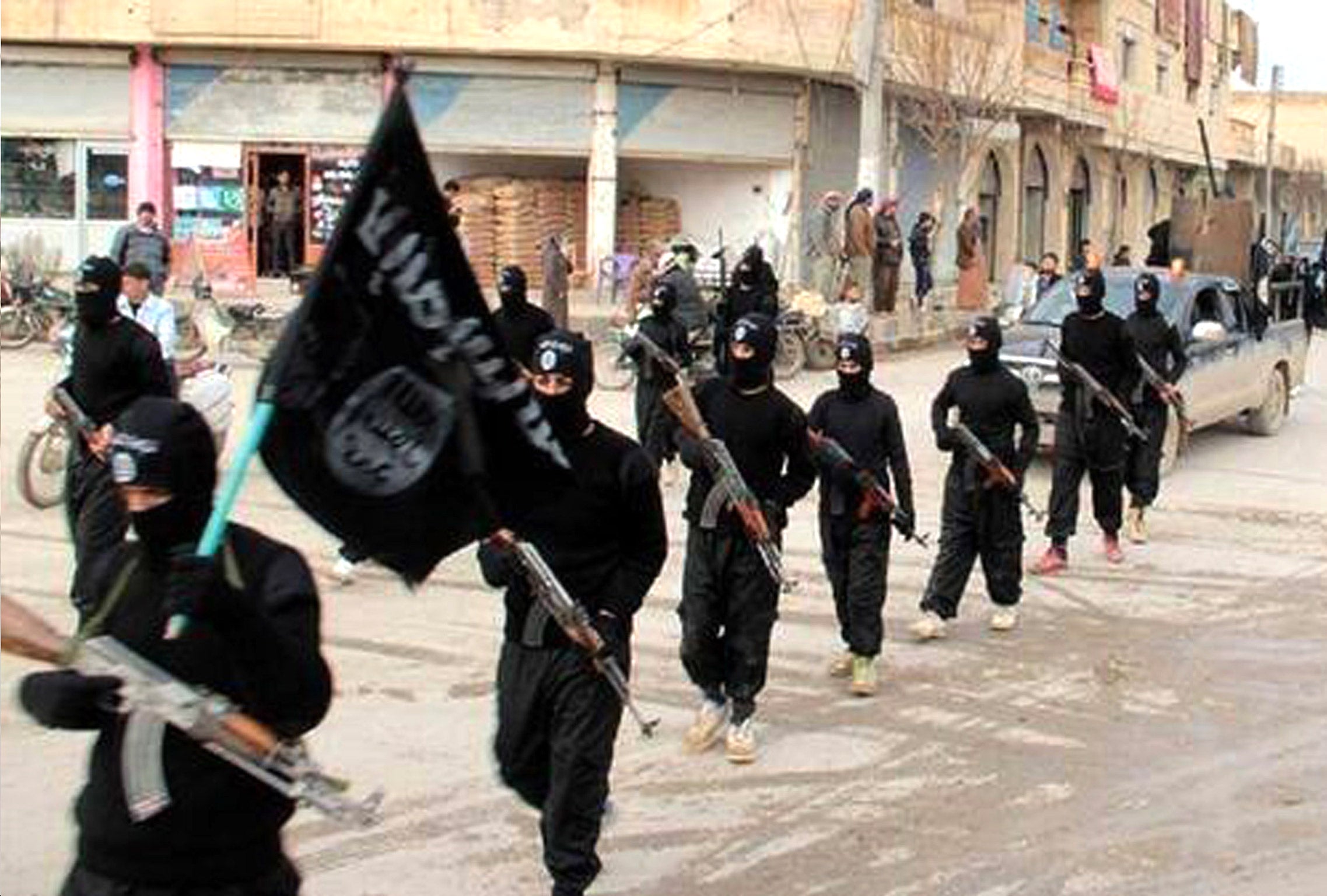Charlie Hebdo attack: Killers' sophistication suggests they had powerful backers
They were well armed, organised, and were able to get away

Your support helps us to tell the story
From reproductive rights to climate change to Big Tech, The Independent is on the ground when the story is developing. Whether it's investigating the financials of Elon Musk's pro-Trump PAC or producing our latest documentary, 'The A Word', which shines a light on the American women fighting for reproductive rights, we know how important it is to parse out the facts from the messaging.
At such a critical moment in US history, we need reporters on the ground. Your donation allows us to keep sending journalists to speak to both sides of the story.
The Independent is trusted by Americans across the entire political spectrum. And unlike many other quality news outlets, we choose not to lock Americans out of our reporting and analysis with paywalls. We believe quality journalism should be available to everyone, paid for by those who can afford it.
Your support makes all the difference.What took place at the offices of Charlie Hebdo was a mission of targeted assassinations carried out by proficient killers armed with Kalashnikovs for urban guerrilla fighting. And, as such, it is markedly different from bombings such as the ones in London and Madrid which sought to inflict the maximum number of indiscriminate casualties.
According to reports, the gunmen sought out by name cartoonists, accused of producing drawings insulting towards Islam, and then executed them, before turning their fire on the others. This was very specific retribution; the masked men were heard shouting “the Prophet has been avenged”.
Unlike most bombings, or even the recent siege in the café in Sydney which began after Man Haron Monis, the Iranian-born preacher, took hostages, it should be easier, theoretically, to avoid being victims of this type of attack. One can do so by not saying or doing anything which may offend a certain brand of Muslim. This self-censorship is already practiced by some, but that cannot be the rule in a pluralist, democratic society with a relatively free media. As a former intelligence official told me: “This is as much a moral as a security issue. It’s all about the kind of society we choose to live in, what level of risk people are prepared to accept.”
What also became apparent during the Paris assault was that the gunmen, while killing journalists, were keen to use newspaper and television to project themselves and their message. “You say to the media, it was al-Qaeda in Yemen,” one shouted at a member of the public.
There is no evidence at this stage that it is actually the case that al-Qaeda in Yemen, or al-Qaeda in the Arabian Peninsula (AQAP) as they are known, were involved. Their usual modus operandi against the West so far has been in plots to bring down airliners or take hostages in Yemen. In 2009, at Little Rock in Arkansas, Abdul Hakim Mujahid Muhammad, a Muslim convert, killed a soldier outside a recruitment office. He had spent some time in Yemen, but the shooting appeared to be a spontaneous act.
Isis, the highest profile of all the Muslim extremist groups, had stated that its immediate objective was to establish an Islamic state in the Levant rather than take jihad to the West. That changed after the US-led air campaign began and the French security services, once they establish the identity of the killers, would undoubtedly examine whether they had been to Syria and Iraq either to fight for Isis, or any other hardline group such as Jabhat al-Nusra.

This does not mean that the gunmen were being controlled by the Caliph in Raqqa or Mosul. They could have formed individual cells and picked their own targets, as radical clerics on the internet have been asking jihadis in the West to do. However, the fact that they had acquired automatic rifles, carried out their plan efficiently and managed to get away, shows a level of organisation not usually seen among “lone wolves”.
Can similar attacks take place in Britain? The security agencies have been warning precisely of this for some time. Several plots to carry out “Mumbai-style” attacks involving guns and grenades, rather than bombs, have been detected and foiled in the past two years.
The murder of Lee Rigby was a selective killing; one cannot ignore the possibility that targeted assassinations with trained terrorists may well take place in London or Birmingham in the future.
Join our commenting forum
Join thought-provoking conversations, follow other Independent readers and see their replies
Comments